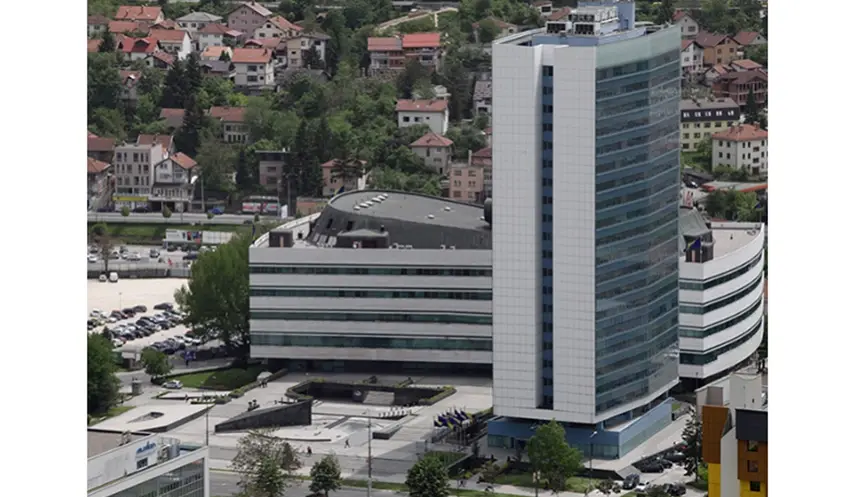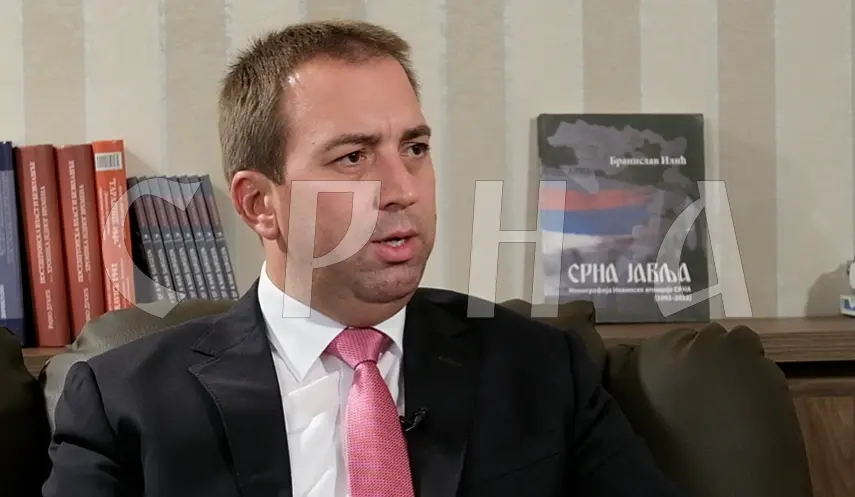OBJECTION TO BiH HOUSE OF REPRESENTATIVES: PREVENT VIOLATIONS OF CONSTITUTION AND LAWS OF BiH AND THE ENTITIES
Republika Srpska - cultural institutions
09/01/2025
09:20

BANJA LUKA, SEPTEMBER 1 /SRNA/ – Directors of Republika Srpska cultural institutions submitted an Objection to the House of Representatives of the BiH Parliamentary Assembly regarding the Order supporting the functioning of the BiH National and University Library and other cultural institutions of importance for BiH, noting that this is an unconstitutional act and proposing that the competent bodies undertake activities to prevent violations of the Constitution and laws of BiH and its entities.
The Objection, signed by the directors of the National and University Library of Republika Srpska Ljilja Petrović Zečić, the Special Library for the Blind and Visually Impaired Mirela Šarić, the Museum of Republika Srpska Davor Strika, the Museum of Contemporary Art Sarita Vujković, the Cinematheque of Republika Srpska Snježan Lalović, the National Theatre Dijana Grbić, and the Children’s Theatre of Republika Srpska Ljiljana Labović Marinković, was conveyed in full by SRNA:
"The Order supporting the functioning of the National and University Library of BiH and other cultural institutions of importance for BiH, adopted on November 21, 2024, was signed by the issuer Christian Schmidt.
This Order represents a completely unconstitutional and unlawful act, as it deeply undermines the constitutional system of BiH for the following reasons:
1. The matter of establishing, functioning, or financing cultural institutions, under the Constitution of BiH, lies fully within the competence of the entities of BiH and the Brčko District. No provision of the BiH Constitution grants authority to any body, including the Council of Ministers as an executive body, to regulate these issues. This could, of course, be addressed by this executive body if agreed by the entities or their representatives in the relevant bodies. Such an agreement does not exist in this case.
2. Simply put, cultural institutions are established, organized, financed, or dissolved in line with the interests, traditions, and needs of each entity.
3. There are cultural institutions that are part of the cultural and historical heritage of the SFRY and SRBiH, when it was legitimate for them to use the designation `BiH` in their name, but it is entirely clear and legally regulated that these institutions cannot continue using the designation `BiH` merely by inertia or simply because they are located in the capital city.
BiH is a completely new state, with a specific internal organization, and precisely this organization, as well as the constitutional-legal system of the country, does not allow any entity or its cultural institutions to assume the label `BiH` unless the prescribed procedure is followed.
It is sufficient to read and analyze the Law on the Use and Protection of the Name BiH /Official Gazette of BiH, Nos. 30/03, 42/04, 50/08, and 76/11/. According to Article 11, this law does not apply to state authorities of BiH and other institutions and legal entities established by law or other act of the Parliamentary Assembly.
The highest legislative body of BiH has also regulated the manner of establishing joint or umbrella associations and foundations through the Law on Associations and Foundations of BiH /Official Gazette of BiH, Nos. 32/01, 42/03, 63/08, 76/11, and 94/16/, finding that this is in the interest of its entities.
Therefore, the Parliamentary Assembly acted within its constitutional powers, resolved the issue of who and when may use the name `BiH,` and gave clear guidance that there is no inertia nor acquired rights in the use of this designation.
4. By adopting the said Order, the issuer created a modality that is not in accordance with the Constitution of BiH, nor with the laws at the state level or entity level that regulate these matters.
It is easy to conclude that, although there is no constitutional basis for establishing `cultural institutions of importance for BiH,` nor an appropriate legal basis, the issuer of the Order, in Article 6, assigns tasks to a body without authority - the Council of Ministers—to submit a draft law to the BiH Parliamentary Assembly regulating, among other things, the management and financing of cultural institutions of importance for BiH.
In essence, by violating the Constitution, cultural institutions of one entity are `translated` to the state level, while an unauthorized body is ordered to implement this unconstitutional activity.
5. It is true that the Council of Ministers has the authority to initiate procedures for adopting laws at the level of BiH, but it does not have the authority to violate or disregard the BiH Constitution, that is, to initiate procedures for laws that lack a constitutional basis or for which there is no agreement between the entities and the Brčko District.
6. The Order states, in the first sentence of Article 6, that it `does not prejudice the legal regulations whose adoption is necessary to update the regulations concerning the status of cultural institutions of importance for BiH,` but this very sentence acknowledges that such regulations do not exist, and then, in the following sentence, obliges the Council of Ministers, contrary to the Constitution, to initiate the adoption of such laws within 60 days.
7. It is obvious, though we will not address it here, that the cultural institutions listed in the Order already face problems with functioning and financing within their own entity.
It is more important to stress that some of those institutions do not even meet the conditions for registration, such as the BiH Cinematheque, whose founding was published in the Official Gazette of the Republic of BiH, No. 13/94, but which was never re-registered in line with the regulations, as it did not meet the requirements to bear the name BiH.
In the same way, other listed institutions were `translated` without legal basis into BiH institutions, and now the Order seeks to legalize this procedure.
In this regard, the Public Institution Cinematheque of Republika Srpska was founded in a legally prescribed manner and registered in accordance with the law, in Republika Srpska. Therefore, Republika Srpska followed and respected the regulations, establishing and registering its institutions in line with the law, without unlawfully assuming the name `BiH` - even in cases where, which is not disputed by citizens or nationals of this country, the citizens and delegates themselves had been founders of those institutions in the former SRBiH.
8. It is important to emphasize that in one state there may exist and function multiple national libraries, museums, cinematheques, or galleries. Thus, in the United Kingdom, separate national libraries exist for England, Scotland, and Wales, while Spain has several institutions with national status operating within its autonomous communities.
BiH is a state with a complex internal structure, though simpler than, for example, Switzerland, and this complexity cannot serve as an excuse to introduce a centralist model of financing and organizing culture, nor can the reason be the preservation of institutions from collapse.
9. In practice, therefore, BiH has, for example, two national university libraries with national functions covering different territorial units: the National and University Library of Republika Srpska and the National and University Library of the Federation of BiH.
The same is true of other institutions, and this reflects the reality of a multi-layered state in which cultural identities and institutions naturally follow the territorial and political structure.
For all these reasons, we express our deep disagreement with the said Order, and propose that the competent bodies undertake activities that will prevent violations of the BiH Constitution, the laws of BiH, and the laws of its entities."








